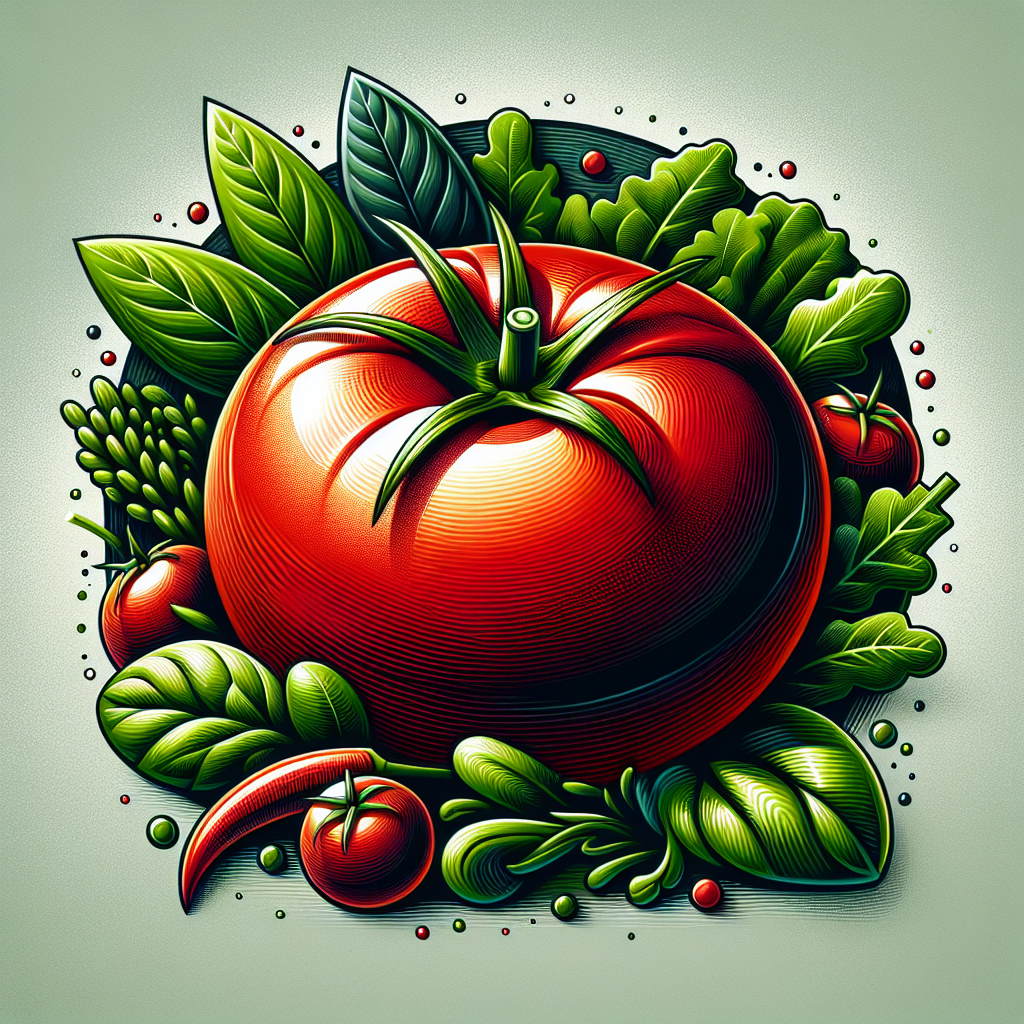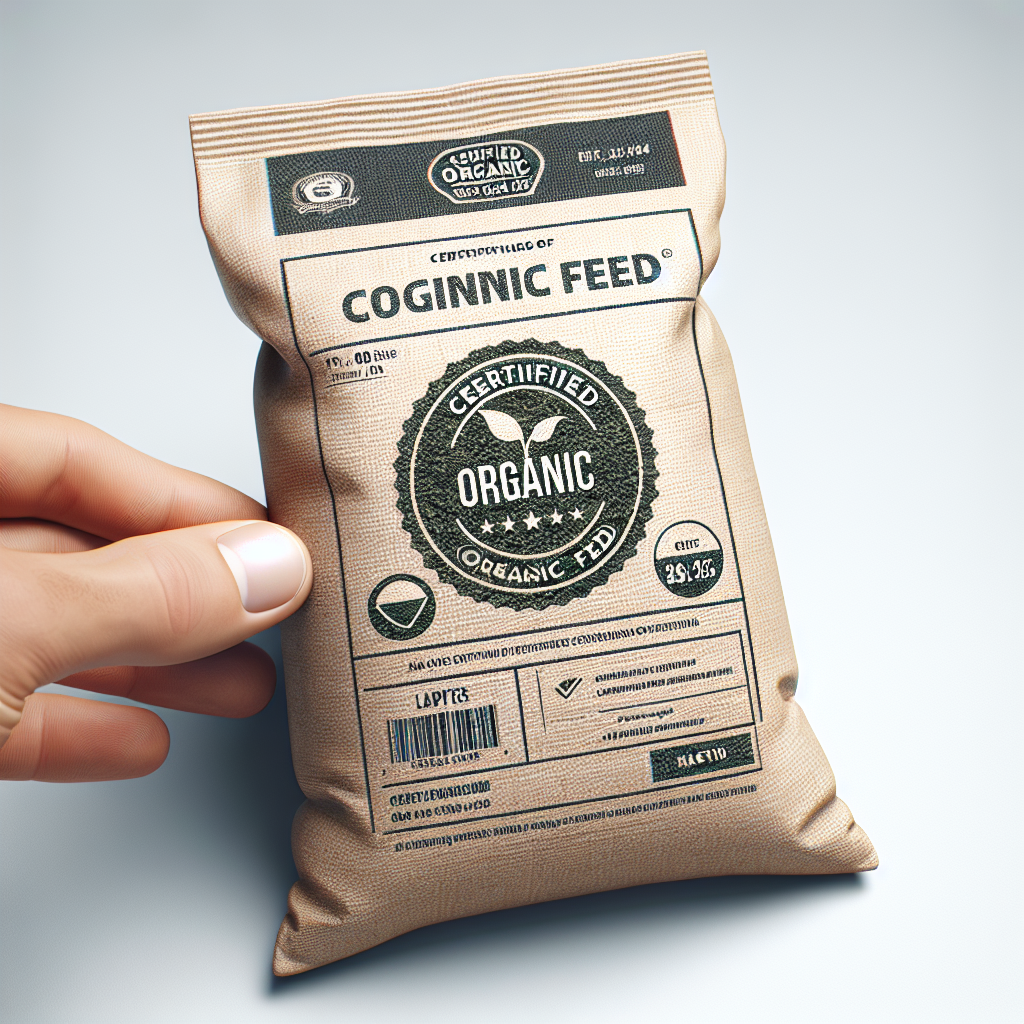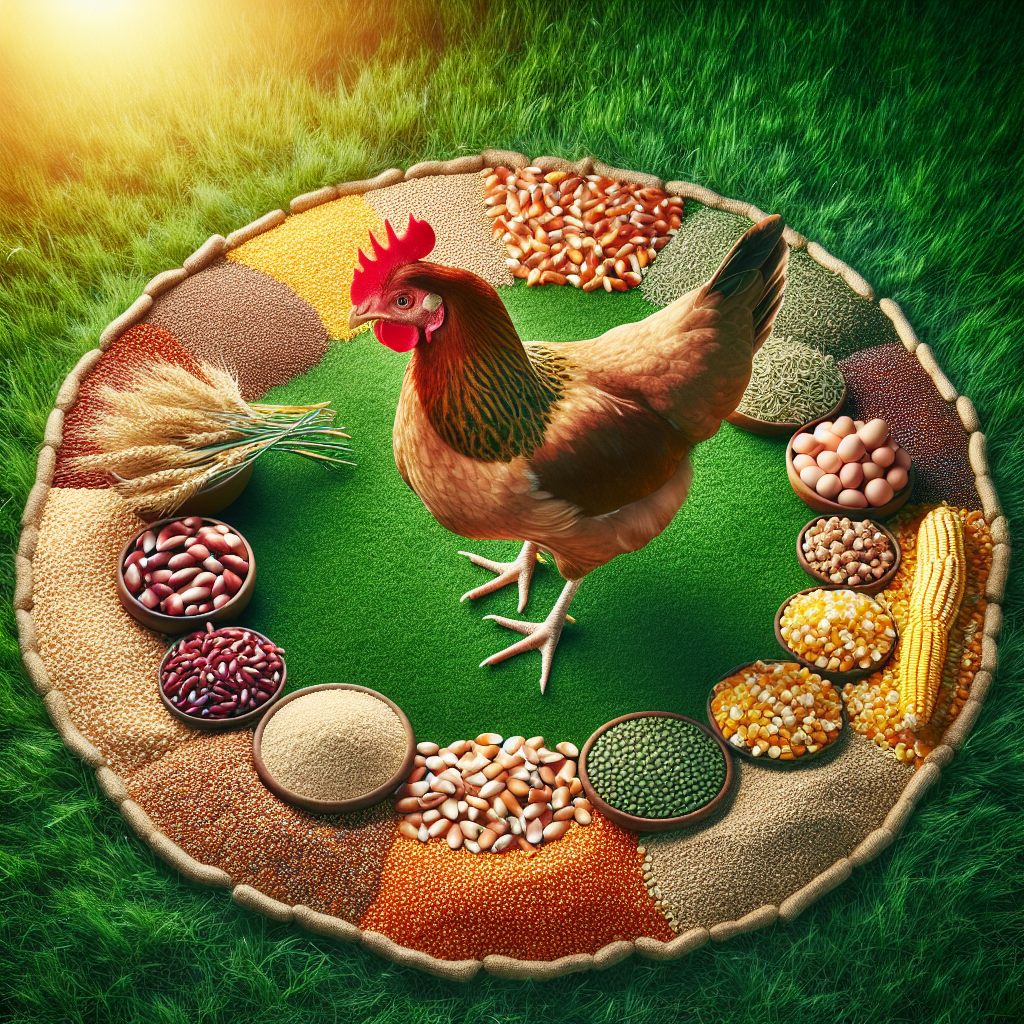Imagine you are a conscientious consumer, dedicated to making eco-friendly choices whenever possible. As you stand in the supermarket aisle, contemplating which chicken feed to purchase for your backyard flock, you pause to consider the sustainability implications of choosing organic options. Will opting for organic chicken feed have a positive impact on the environment? Will it promote healthier soil and reduce pesticide use? In this article, we will explore the sustainability implications of choosing organic chicken feed, shedding light on its potential benefits and drawbacks. So, let’s embark on a journey to discover how our choice of chicken feed can contribute to a more sustainable future.
Environmental impact
Choosing organic chicken feed can have several positive sustainability implications. One of the main benefits is the reduction of chemical runoff. Organic feed is produced without the use of synthetic fertilizers, pesticides, or genetically modified organisms (GMOs). As a result, when chicken waste is spread on fields where organic feed crops are grown, there is a lower risk of chemical runoff contaminating nearby water sources. This helps to protect the quality of water and minimize the negative impact on aquatic ecosystems.
Another environmental advantage of organic chicken feed is the preservation of biodiversity. Organic farming practices encourage the use of diverse crop rotations and the preservation of natural habitats. This helps to create a more balanced and resilient ecosystem, supporting the survival of a wide range of plant and animal species. By choosing organic feed, you are supporting agricultural practices that promote biodiversity conservation and contribute to the overall health of our planet.
Furthermore, organic chicken feed can help lower carbon footprint. Organic farming methods prioritize the use of natural inputs and rely less on fossil fuel-based fertilizers and pesticides. This reduces greenhouse gas emissions generated by conventional farming practices. Additionally, organic farmers often implement strategies to sequester carbon in the soil, such as the use of cover crops and organic matter. By choosing organic feed, you are indirectly contributing to the fight against climate change and reducing your environmental impact.
Lastly, organic feed promotes water conservation. Traditional farming practices often require intensive irrigation, leading to excessive water consumption. In contrast, organic farming focuses on building healthy soil that retains moisture more efficiently. The use of organic matter and crop rotation helps to improve soil structure, minimizing water runoff and erosion. By supporting organic chicken feed, you are indirectly conserving water resources and promoting sustainable water use in agriculture.
Soil health
Organic chicken feed plays a crucial role in enhancing soil health. Organic farming practices prioritize the use of natural fertilizers, such as compost and manure, which are rich in nutrients. These inputs provide a steady supply of organic matter that improves soil fertility, leading to healthier and more productive crops. By choosing organic feed, you are contributing to the long-term sustainability of soil, ensuring its ability to support agricultural production for generations to come.
Another benefit for soil health is the reduced soil erosion associated with organic feed production. Conventional farming practices often involve extensive tilling and the use of synthetic chemicals, which can degrade soil structure and increase erosion rates. In contrast, organic farming methods focus on implementing soil conservation practices, such as cover crops and minimal tillage. These practices help to protect the topsoil from erosion, preserving its nutrient-rich content and ensuring the long-term viability of agricultural land.
In addition, organic feed promotes microbial activity in the soil. Microorganisms are vital for nutrient cycling and maintaining soil health. Organic farming practices, such as the use of organic matter and avoiding synthetic chemicals, create a favorable environment for beneficial microbes to thrive. This enhances nutrient availability to plants, promoting their growth and overall productivity. By choosing organic chicken feed, you are indirectly supporting a robust and diverse soil microbiome, ensuring a healthy foundation for sustainable agriculture.
Furthermore, organic feed helps protect against soil contamination. Synthetic pesticides and fertilizers used in conventional farming can accumulate in the soil over time, leading to potential contamination and negatively impacting ecosystem health. Organic farming practices avoid the use of these chemicals, minimizing the risk of soil contamination and preserving the quality of agricultural land. By opting for organic chicken feed, you are contributing to the protection of soil resources and reducing the need for remediation efforts in the future.
Reduced pesticide use
Opting for organic chicken feed has significant advantages when it comes to reducing pesticide use. Conventional poultry farming often relies on the use of synthetic pesticides to control pests and diseases. However, these chemicals can have adverse effects on human health and the environment. By choosing organic feed, you are decreasing the exposure to toxic chemicals not only for the chickens but also for the farmers and consumers.
In addition to human health benefits, organic feed promotes the protection of pollinators. Pollinators, such as bees and butterflies, play a crucial role in the reproduction of many plants, including those used in organic feed production. Synthetic pesticides can have harmful effects on pollinators, leading to population declines and impacting biodiversity. By selecting organic chicken feed, you are indirectly supporting pollinator health and contributing to the conservation of these important species.
Moreover, organic feed helps preserve soil microorganisms. The use of synthetic pesticides can disrupt the delicate balance of soil microorganisms, leading to reduced microbial diversity and activity. However, organic farming practices avoid the use of these chemicals, allowing the soil microbiome to thrive. Soil microorganisms contribute to nutrient cycling, improve soil structure, and enhance plant health. By choosing organic chicken feed, you are indirectly supporting the preservation of soil microorganisms and their ecological functions.
Avoidance of genetically modified organisms (GMOs)
One of the main reasons why some individuals choose organic chicken feed is to avoid genetically modified organisms (GMOs). GMOs are organisms whose genetic material has been altered using biotechnology. While GMOs have been deemed safe for consumption by regulatory agencies, choosing organic feed provides an alternative for those who prefer not to consume or support the use of GMOs.
Furthermore, choosing organic chicken feed can help protect against unknown health risks associated with GMOs. Some concerns regarding GMOs include the potential for allergenicity, the development of antibiotic resistance, and unintended impacts on ecosystems. By selecting organic feed, you are indirectly reducing the risk of exposure to genetically modified ingredients and supporting a more precautionary approach to food production.
Another advantage of organic feed is the preservation of seed diversity. Conventional agriculture often relies on a small number of genetically uniform crops, which can be vulnerable to disease outbreaks or other environmental challenges. Organic farming, on the other hand, emphasizes the use of diverse crop rotations and the preservation of heirloom and traditional seed varieties. By choosing organic chicken feed, you are indirectly supporting seed diversity and contributing to the resilience of our food system.
Moreover, selecting organic feed helps maintain organic integrity. Organic certification standards prohibit the use of GMOs, ensuring that organic products are produced without genetic modification. By choosing organic chicken feed, you can confidently support a production system that adheres to strict organic standards and promotes transparency in the food supply chain.
Improved animal welfare
Choosing organic chicken feed has several positive implications for animal welfare. Organic farming practices prioritize the well-being of animals, providing them with access to outdoors and opportunities to engage in natural behaviors. Organic standards require outdoor access for poultry, allowing them to forage, dust bathe, and exhibit natural behaviors that contribute to their overall health and well-being.
Additionally, organic feed contributes to enhanced nutritional content in poultry. Organic crops are grown using natural fertilizers and organic farming practices, which promote soil health and nutrient availability. As a result, organic feed is often richer in essential nutrients, vitamins, and minerals. By choosing organic chicken feed, you are indirectly supporting the production of healthier chickens and ensuring the delivery of nutritious poultry products to consumers.
Furthermore, organic feed promotes the avoidance of antibiotics and synthetic hormones. Conventional poultry farming often relies on the routine use of antibiotics to prevent disease outbreaks and promote growth. However, the overuse of antibiotics contributes to the development of antibiotic resistance, a major public health concern. Organic standards prohibit the use of antibiotics and synthetic hormones in feed, reducing the risk of antibiotic-resistant bacteria and promoting more responsible use of these important medical tools.
Support for local ecosystems
One of the sustainability implications of choosing organic chicken feed is the support for local ecosystems. Organic farming practices often involve smaller-scale operations that are more closely connected to local communities and ecosystems. By engaging with local farmers who produce organic feed, you are indirectly contributing to the preservation of local ecosystems and their associated biodiversity.
Another benefit is the boost to the local economy. Organic farming tends to rely on local markets and supply chains, creating opportunities for small-scale farmers and businesses. By choosing organic chicken feed, you are indirectly supporting local farmers, stimulating economic growth, and contributing to the vitality of rural communities.
Furthermore, organic farming practices prioritize the protection of natural resources. Organic farmers often implement sustainable agricultural practices, such as water conservation, soil management, and integrated pest management. These strategies aim to minimize the negative impact on natural resources and promote long-term sustainability. By selecting organic feed, you are indirectly supporting the protection of natural resources, such as water, soil, and biodiversity.
Higher quality feed
Choosing organic chicken feed can result in higher quality feed for your poultry. Organic farming practices prioritize soil health and the use of natural inputs, such as compost and organic matter. As a result, organic feed tends to be richer in nutrients and vitamins compared to conventional counterparts. This translates into higher quality feed for your chickens, providing them with the essential nutrients they need to thrive.
Additionally, organic feed often contains reduced chemical residues. Conventional farming practices involve the use of synthetic pesticides and fertilizers, which can leave residues on crops. Organic farming practices, on the other hand, avoid the use of these chemicals, resulting in feed with lower chemical residues. By opting for organic chicken feed, you are indirectly reducing the exposure of your poultry to potentially harmful residues and ensuring a cleaner and healthier food source.
Moreover, organic feed is known for its improved taste and flavor. Many consumers and chefs prefer organic poultry products for their distinct taste and culinary qualities. The organic farming practices that contribute to soil health and nutrient-rich crops also enhance the taste and flavor of the feed and, consequently, the poultry products derived from it. By choosing organic chicken feed, you are indirectly supporting the production of poultry with superior taste and flavor profiles.
Financial implications
While there are numerous benefits associated with choosing organic chicken feed, it is important to consider the financial implications. Organic feed often comes at a higher cost compared to conventional alternatives. The production of organic crops involves additional labor, certification fees, and the use of more expensive organic inputs. These factors contribute to the higher price tag of organic feed.
However, it is essential to balance the economic viability of organic feed with its long-term benefits. While the upfront costs may be higher, the long-term sustainability and environmental advantages can outweigh the financial burden. Additionally, as demand for organic products continues to grow, there may be potential for price premiums in the market, which can help offset the higher feed costs.
It is also worth considering the potential savings in other areas when using organic feed. For example, the reduced need for synthetic pesticides and veterinary medicines may result in lower veterinary bills and less reliance on expensive inputs. By adopting a holistic perspective and evaluating the overall financial implications, organic chicken feed can be a financially viable choice in the long run.
Supply chain considerations
When choosing organic chicken feed, supply chain considerations become crucial. It is important to look for products that have been certified as organic by recognized certification bodies. Organic certification ensures that the feed has been produced following strict organic standards and regulations. Look for certification seals on packaging or inquire with feed suppliers to ensure the authenticity and integrity of the organic feed.
Traceability and transparency are also important aspects of the organic feed supply chain. Understanding where the feed ingredients come from and how they are produced is essential for making informed decisions. By supporting transparent supply chains, you are indirectly contributing to responsible and sustainable agricultural practices.
Furthermore, it is crucial to ensure the integrity of organic products throughout the supply chain. Organic certification standards require compliance at every stage of production, processing, and distribution. Verification and auditing processes help ensure that organic products are not mixed with conventional ones, maintaining the integrity of organic feed and providing consumers with reliable organic choices.
Challenges of organic feed production
While there are numerous benefits to choosing organic chicken feed, there are also challenges associated with its production.
One of the main challenges is the limited availability and variety of organic feed. As the demand for organic products continues to grow, there is a need for increased organic feed production. However, the transition from conventional to organic farming can be a complex and time-consuming process, which may result in limited availability of organic feed. Additionally, certain regions may have limited access to organic feed due to factors like climate or lack of local organic feed producers.
Quality control and consistency can also be a challenge in organic feed production. Organic farming practices require a detailed understanding of soil health, nutrient management, and pest control methods. Ensuring consistency in feed quality and nutrient content can be challenging, especially when relying on varying organic inputs and natural fertilizers. However, ongoing research and advancements in organic farming techniques are constantly improving the quality and consistency of organic feed.
Organic feed production methods can be resource-intensive. Organic farming practices often require additional labor, as well as the use of natural fertilizers and organic inputs. The increased labor and costs associated with organic farming can pose challenges for farmers, especially those transitioning from conventional to organic production. However, the long-term environmental benefits and market demand for organic products provide incentives for farmers to overcome these challenges and embrace organic feed production.
In conclusion, choosing organic chicken feed has numerous sustainability implications across various aspects. From reducing chemical runoff and preserving biodiversity to promoting soil health and protecting against contamination, organic feed plays a vital role in sustainable agriculture. It also contributes to reduced pesticide use, avoidance of GMOs, improved animal welfare, support for local ecosystems, higher quality feed, and financial implications. However, it is essential to consider the challenges associated with organic feed production, such as limited availability, quality control, and resource-intensive methods. By being aware of these implications and making informed choices, you can contribute to a more sustainable and environmentally-friendly poultry production system.




